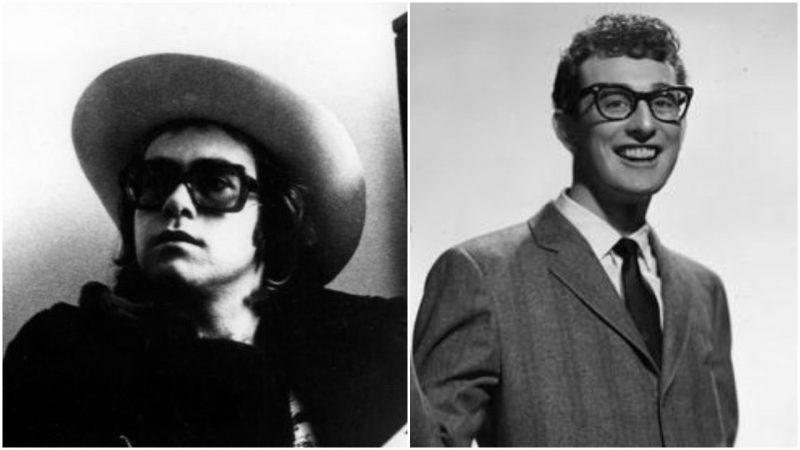Buddy Holly, the singer and songwriter who defined 1950s rock and roll, didn’t live long, but he influenced a generation of musicians still performing today. Pop stars from the Rolling Stones to Elton John took their cues from Holly’s mashup of gospel, country, and rhythm and blues, and adopted his now-standard format of two guitars, bass, and drums. As the Stones’ Keith Richards said of Holly, “He’s in everybody.”
The skinny, clean-cut, suit-wearing Holly even influenced the style of some future pop stars. When Elton John was 13, he took to wearing horn-rimmed glasses in imitation of Holly. Though it is hard now to imagine the theatrical Elton John without his spectacular specs, at the time he didn’t even need glasses.
In 1936, Buddy Holly was born Charles Hardin Holley in Lubbock, Texas, to a family of musicians, alongside whom he learned to sing and play guitar. He formed his first band when he was 16, and by the time he was 19, was the opening act for Elvis Presley. In the late 1950s, Holly recorded several indelible hits with his band the Crickets: “That’ll Be the Day,” “Peggy Sue,” and “Not Fade Away,” the latter a U.K. Top Ten hit by the Rolling Stones in 1964.
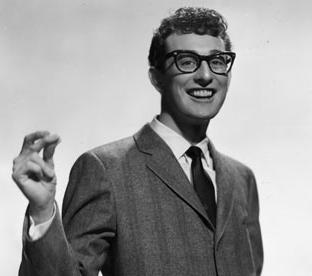
Sir Elton John, as he is now known thanks to being knighted in 1998, was born Reginald Kenneth Dwight in 1947. Like Holly, he took to music early, performing as a pianist in his early teens. By the time he was 20, he launched his career with his songwriting partner Bernie Taupin, crafting songs for advertisements and other pop stars. Elton John released his first Top 10 single, “Your Song,” in 1970. Since then, he has become one of the most successful recording artists of all time, with a song in Billboard’s Hot 100 for 31 consecutive years.
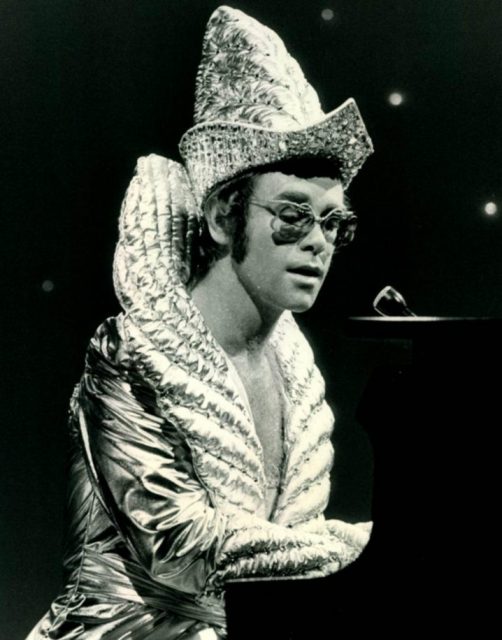
In February 1959, after a show in Clear Lake, Iowa, Buddy Holly boarded a small chartered plane to fly to the next gig, in Minnesota. The weather was bad. Shortly after takeoff, the plane crashed, killing everyone on board: Holly, the singer Ritchie Valens, the singer known as the Big Bopper, and the pilot. Holly was just 22 years old. The tragic death was memorialized in song, “The Day the Music Died,” by Don McLean.
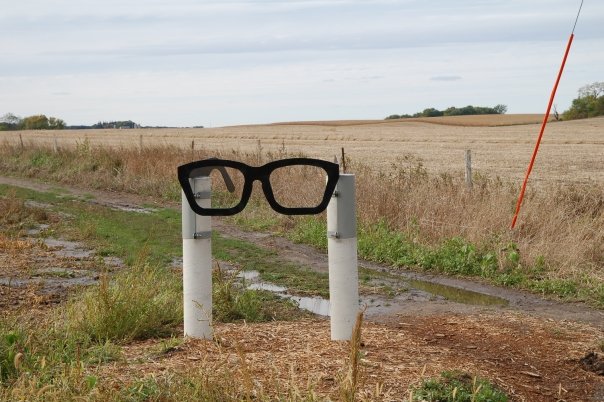
Elton John was then a young radio-consuming tween, who revered the pioneering rock and roller. “I began wearing glasses when I was 13 to copy Buddy Holly,” he said in John Goldrosen’s 1979 book The Buddy Holly Story. “After 18 months, I found I couldn’t see without them. If any young fans are thinking of copying me, I’d advise them to forget it!”
(It is worth noting that while Elton John may be among the most admired and successful pop stars of all time, he is not a professional ophthalmologist. It is not uncommon for young teens to begin to experience myopia, or nearsightedness. And according to VSP.com, the vision provider service network, wearing the wrong prescription glasses does not damage your eyes. “The wrong prescription may feel weird, and it can even give you a headache if you wear them very long, but it won’t damage your eyes. If your glasses have an old prescription, you might start to experience some eye strain. To see your best, don’t wear anyone else’s glasses.”)
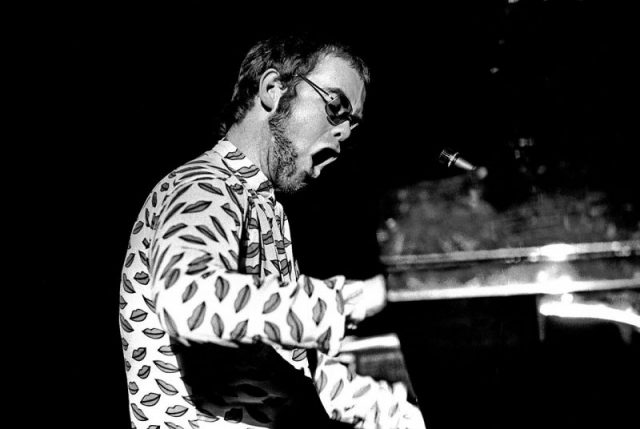
Elton John may need glasses to see, but he had the vision to own his nearsightedness, seeking out kooky eyeglasses to match his outlandish outfits. “Think novelty shades that feature oddball add-ons like windshield wipers or fur, and rhinestone-covered specs,” as a recent Vogue.com tribute pointed out. “With every shape, size, style, and color popping up, he’s managed to keep things interesting—and fabulous—while creating a look that’s completely his.”
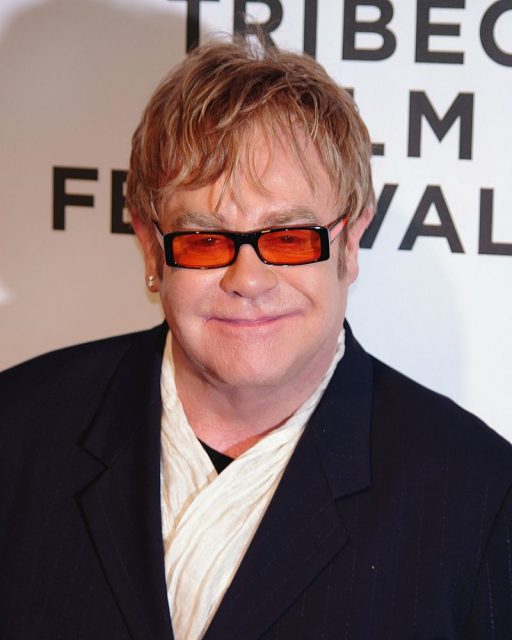
CC BY 3.0
In 2010 Elton John reportedly told the BBC that he didn’t enjoy spending money on high-tech gadgets, preferring to invest in his wardrobe. He said he owns “a quarter million pairs of glasses.”
Related story from us: The Day the Music Died: The plane crash which killed Buddy Holly
Elton John’s remarkable collection of eyeglasses even has its own rumor mill. In 2013, newspapers reported that Elton John had requested a separate climate-controlled hotel room just for his glasses. Though tour organizers retracted the comment and vehemently denied its accuracy, it’s easy to see how the rumor took hold. One extra hotel room doesn’t seem like the biggest or most outlandish extravagance a person could imagine for a rock star with a net worth around $450 million, according to Forbes.
Elton John, it can be said, truly puts the spectacle in spectacles.
E.L. Hamilton has written about pop culture for a variety of magazines and newspapers, including Rolling Stone, Seventeen, Cosmopolitan, the New York Post and the New York Daily News. She lives in central New Jersey, just west of New York City.
